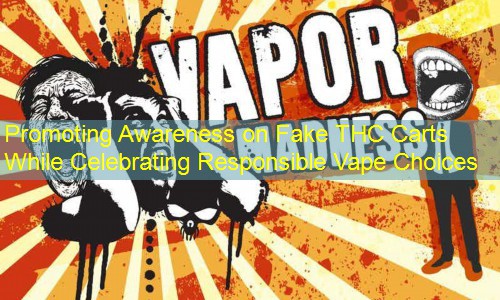Overview of Fake THC Carts

The proliferation of
fake THC carts
in the cannabis market has raised concerns among users and regulators alike. These counterfeit products often mimic legitimate brands, leading many to inadvertently purchase items that can be harmful. Fake THC cartridges are typically improperly labeled and may contain dangerous additives or unexplained substances. Consumers, lured by the allure of low prices, often find themselves putting their health at risk. A thorough assessment of these products reveals their distinct characteristics, usage experience, comparisons with competitors, and the potential user demographic that might be drawn to them.
Product Features
One of the most significant features of
fake THC carts
is their unregulated nature. Unlike authentic cannabis products, these carts do not undergo safety testing, meaning users have no way of knowing the ingredients. Commonly found in unlicensed dispensaries or online forums, these fake carts often claim to contain THC distillate but could include synthetic cannabinoids or unverified oils. Many are also equipped with flashy branding and high-potency claims, which further attract unsuspecting consumers.
User Experience
The experience of using
fake THC carts
can be misleading. Users often report potent effects initially, potentially due to the presence of synthetic compounds. However, adverse reactions are common, ranging from mild discomfort to severe health issues like lung injury. Because these products are not manufactured under standard conditions, the vaping experience can also be inconsistent, with some carts producing a harsh, unpleasant flavor or generating excessive smoke. As a result, the user experience is often a gamble, with significant health risks involved.
Competitor Comparison
When compared to genuine cannabis products,
fake THC carts
demonstrate notable differences. Authentic carts are typically well-regulated, ensuring ingredient transparency and safety testing. Established brands often conduct third-party lab tests, which provide consumers with detailed cannabinoid profiles and ensure the absence of harmful additives. In contrast, counterfeit products lack this accountability, making it difficult for users to trust the information regarding their contents and potency. While legitimate brands may command a higher price, the safety and quality they offer outweigh the risks associated with cheaper, fake alternatives.
Advantages and Disadvantages
The primary
advantages
of fake THC carts include their lower prices and widespread availability, making them accessible to a wide user base. However, the
disadvantages
far outweigh these benefits. Users face serious health risks, legal repercussions, and the potential for addiction. The lack of quality control and regulation means that every cart may provide an unpredictable experience, increasing the chances of negative health outcomes.
Target User Demographic
The target demographic for
fake THC carts
primarily includes younger adults seeking affordable options for recreational use. Many are drawn to these products due to their low cost and the allure of potent effects. However, this demographic may lack awareness of the potential risks associated with unregulated products, making education crucial. Ultimately, individuals seeking a safe and reliable vaping experience should prioritize quality over cost and consider the implications of using fake THC carts.














